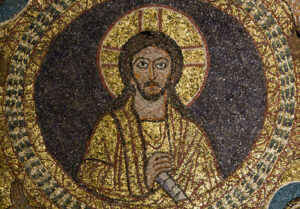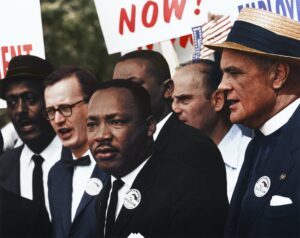In general, liberation theologies emphasize the locus of the enunciation, the where from which the discourses of God come from, rerouting epistemologies, structures of thinking, forms of action, spiritual understandings and ways of being. Grounded in a fundamental option for the poor, to speak of God means to be with and speak with those who are oppressed. No social and political order is to be accepted if it is against the oppressed, no knowledge is to be fostered if not the revolutionary ones that come from the struggle.
Ernesto Cardenal belongs to the first generation of Latin American liberation theologians, theologians who challenged the established forms of doing theology (and the power relations underlying those forms), shifting the where of theology into the midst of the people. While all these theologians gave us a new and rich vocabulary to think about the material world and the Christian faith, Cardenal can also be counted among Biblical scholars such as Milton Schwantes, Carlos Mesters, George V. Pixley, Elza Tamez, Nancy Cardoso and many others who gave us a wealth of metaphors to think the biblical stories otherwise at the heart of the struggle of the people.
If Ivone Gebara gave us an expansive anti-patriarchal and ecological language, Cardenal, along with Rubem Alves and Pedro Casaldáliga, gave us a new lyricism, an unprecedented structure of language, a rich imaginary. He drew on a plethora of sources that were not limited by the strictures of hermetic academic language.
Cardenal: A Life
Cardenal is one of the most important poets in Nicaragua and Latin America. He was a part of the Sandinista Front which was opposed to the dictatorship of Somoza in Nicaragua. A son of a very wealthy family in Nicaragua, he went through two conversions. The first was a conversion to religious life when he became a Trappist monk and went to study with Thomas Merton in America.
After his time with Merton, he went back to Managua where he was ordained a priest. It was during his visit to Cuba that he underwent a second conversion: he became a Marxist and a revolutionary. He says of revolution: “Revolution draws us near to God. The real revolution is the gospel put into practice, giving food to the hungry, home, education, health, everything to those who have nothing. No personal assistance but a national project. If not, it is not a revolution, it is fraud.”
After Cuba, he engaged with liberation theology and then moved to the

island of Solentiname in the south of Nicaragua, where he lived with fishermen, women, and peasants, reading the Bible with them. A testimony of his time with these communities is registered in the phenomenal book The Gospel in Solentiname. His resolute commitment to the poor and his political commitment to revolution was costly. Liberation theologian Frei Betto writes that: “In 1983, Pope John Paul II refused to extend the hand to Cardenal, then Minister of Culture, and who was part of the official welcome to the Pope. And in public, Pope John Paul II rebuked and humiliated him. In 1985, he suspended Cardenal from his priestly duties. Pope Francis rehabilitated him in 2019.”
In 1979 Cardenal became the Minister of Culture of Nicaragua. During this time, he developed poetry meetings between peasants and workers. “I wanted a poetry that was not about the metrics or the pairing of words, but rather, poetry as the way people speak daily.” Later, in 1994, Cardenal broke with the Sandinista Front over its insistence that the government of Daniel Ortega had left the revolution. This political break also had theological and spiritual implications. They showed his freedom from the allurements of ideology, especially when political regimes decide to stay close to power and forget the people.
In the 2000’s, he held poetry meetings with children and adolescents suffering from cancer and published the poetry written by these children. He received awards for his artistic achievements from all over the world, including the 2012 Reina Sofia poetry prize and the Peace Prize of the German Book Trade.
Cardenal died on March 1, 2020 due to kidney and heart problems. His ashes are now buried in the Solentiname Islands where he formed a community of peasants and artists in 1966.
Commitment to Revolution
For Cardenal, to be a revolutionary it is necessary to think of those who have died. In a poem, he says something like this:
“When you have won the vote, think about those who died, when you stand up with the leaders, think about those who died, when you arrive at the airport’s big cities, think of those who died, when your voice speaks to microphones or television, think of those who died, when the old lady with her problems arrives, think of those who died, when looking at the shirtless, the excluded, the thrown to the side, think of those who died, to think of them and to think with those who lived, for you are their representatives, and they have entrusted you to think of those who have died.”
To think of those who died (humans and non-humans) is to position ourselves in the very trenchers of the struggles of our present day. For, as Walter Benjamin reminds us, if we lose, even those who died will lose.
Cardenal told Frei Betto how he related contemplation and revolutionary activity: “They are not opposed. One can work for the revolution by being contemplative. In the traditional sense, there is a dichotomy between action and contemplation. However, I live contemplation in action. ” And he stressed: “The only message of the Gospel is the revolution, which he calls the Kingdom of God, a requirement to overcome all marks of sin, injustice and oppression, until only love is possible.”
Poetry for the People
About the shape of his poetic work Cardenal said: “In a poem I dedicated to Dom Pedro Casaldáliga, I say that I write for the same reason as the biblical prophets, who made poetry a form of denouncing injustices and announcing a new time.” His most important work, Cardenal said, was Cosmic Canticle. It is one poem written in almost 500 pages. In it, he describes the science of the Universe’s evolution, God’s love and beauty. Who today can write about theology, Bible studies, poetry, science and be fully immersed in the lives of the people and in the trenches of revolution?
In his work, Cardenal associated prayer and struggle, spirituality and thinking, mysticism and political commitment. There is something for us to learn here, since so much theology has become mostly a rational, academic enterprise without much spirit(s). There is very little dealing with forms of spiritualities, gestures of the breath, prayerful movements of the body, how to pay attention. We need more theo-poets like Ernesto Cardenal, organic intellectuals who have their ears to the ground where people live.
The Memory of Cardenal, the Future of Liberation Theology
We need more thinkers who live off of wonders: artists who disorient us; theo-poets, like Cardenal, who tell us that we must think of those who have died; mystics who teach us to breathe when our rivers are so polluted we can’t drink; eco-liturgists praying in the name of God with their mouths filled with soil; earth-performers telling us what the earth wants; restless prophets screaming about the devastations they see and feel and die for.
All of those who can help us see, taste, hear, and touch what cannot be grasped by Cartesian, academic theological rationalities. If we are to build a world of justice, only a genuine revolution can take us there. Without revolution, Christian theologies, even the most earnest, easily become tools of the oppressor’s house.
The earth is dying and our communities are dying too. Climate destruction will bring with it wars, mass migrations, ecological disaster and revolutions we didn’t want to see coming. But since this is unavoidable, may our crises be ones with some possibilities. May the subversive memory of Ernesto Cardenal help prepare the revolution, or at least, prepare the global community to salvage what we can for justice!
Cláudio Carvalhaes is Associate Professor of Worship at Union Theological Seminary. He is theologian, liturgist, artist and a native Brazilian.
The Bias Magazine. is building the voice of the Christian Left through distinctive, radical and ecumenical writing. In order to continue our work, we need your financial support. If you appreciate this article, would you consider making a donation today? Any amount helps.
CLICK TO DONATE NOW
The Bias Magazine is building a distinctive voice for the Christian Left. To continue our work, we need your financial support. If you appreciate this article, would you consider making a sustaining monthly donation?
CLICK TO DONATE NOW



